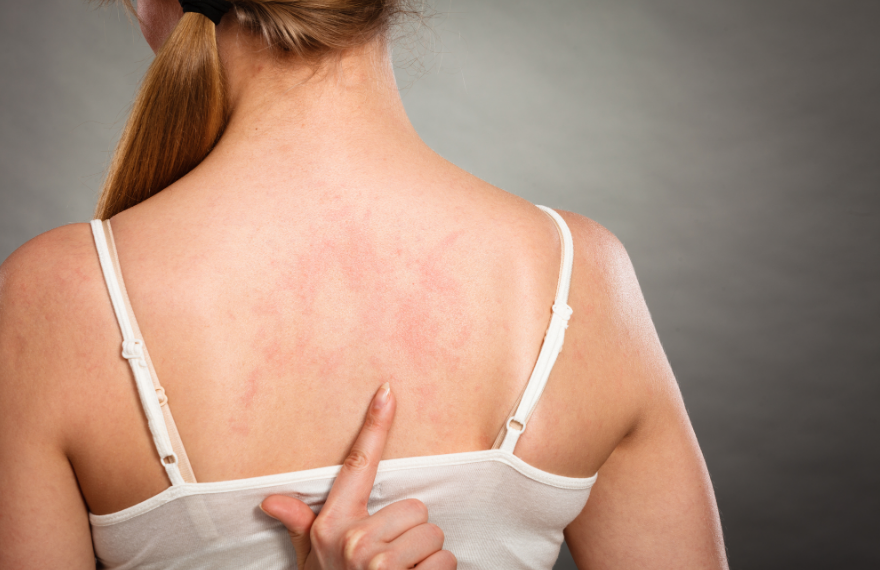Eczema is a skin condition that affects more than 30 million Americans across the country. This inflammatory skin condition can be humiliating as it is readily visible. So, what exactly is eczema? Eczema is an umbrella term that is often used to refer to skin that has become red, itchy and inflamed or otherwise known as a rash. There are six common types of eczema which include the following: atopic dermatitis, contact dermatitis, dyshidrotic eczema, nummular eczema, seborrheic dermatitis and stasis dermatitis. Despite its alarming appearance, eczema is common and manageable, although it is important to note that this skin condition can range from mild, moderate, to serve in extreme cases. A common misconception is that eczema is contagious, although researchers haven’t been able to identify a specific cause to eczema, they can verify that it is not contagious. Typically, eczema can be reduced to genetics and environmental factors, when individuals with eczema have immune system triggered, the skin cells don’t act accordingly and thus cause eczema to flare up.
The weather can be harsh on anyone’s skin, however if you have eczema you’re more at risk because all types of weather can trigger flare ups. Hot, cold, humid, and dry weather can cause individuals with eczema to get dry, irritated, and itchy skin. When trying to manage eczema in hot, humid weather make sure to try and avoid getting too sweat. Sweating profusely can dry out your skin and irritate your skin. Additionally, the salt from your sweat can inflame or sting your skin. Wear clothing that is breathable in order to keep your skin cool and dry. Make sure to stay away wool, linen, or any fabric that is itchy or rough.
If you are planning on spending some time in water, whether it be a pool, lake, or ocean you must prepare your skin before you swim. The chlorine in pool water and salt in ocean water can trigger flare ups. Apply a layer of soothing moisturizer or lotion before you get in the water. It is important to use sunscreen, however, make sure to apply sunscreen that is mineral based because the chemicals in regular sunscreen can irritate your skin.
Lastly, the winter days can be some of the worst triggers on your skin. It is essential that you shower with lukewarm water instead of hot water. Hot water can inflame your eczema, especially if your skin is exposed to changing temperatures. For instance, if you’re outside in the cold then come inside to take a bath with hot water, your skin may react negatively to the drastic changes. Wear protective clothing that will keep you warm but not cause you to overheat.
Although, there is no real cure to eczema there are common treatments that can be applied to help manage it. Some of the treatments include over-the-counter remedies, prescription topical medications, phototherapy, immunosuppressants, and biologic drugs. There are also natural alternative treatments such as coconut oil, sunflower oil, cardiospermum, and topical vitamin B12. Depending on the severity of the eczema, will warrant different treatments, but generally an effective way to reduce the redness and itchiness is to maintain the affected area moisturized.

